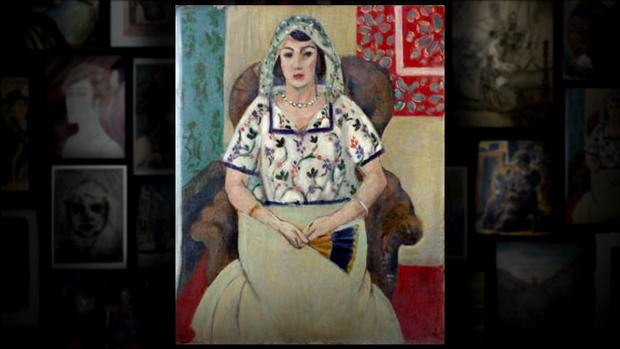Cornelius Gurlitt, infamous German art collector, dies at 81
BERLIN - Cornelius Gurlitt, a reclusive German collector whose long-secret hoard of well over 1,000 artworks triggered an international uproar over the fate of art looted by the Nazis, has died. He was 81.
Gurlitt was thrust into the public spotlight in November when authorities, following a report by German magazine Focus, disclosed that they had seized more than 1,400 items - among them 1,280 works by artists including Pablo Picasso, Henri Matisse and Marc Chagall - from the Munich apartment more than a year earlier.
They had discovered the works while investigating a tax case after Gurlitt aroused their suspicions during a routine customs check on a Zurich-Munich train in September 2010.
Some of the pieces, by Matisse, Chagall and Otto Dix, were previously unknown, not listed in the detailed inventories compiled by art scholars.
Gurlitt had inherited the collection of paintings, prints, drawings and sculptures from his father, Hildebrand Gurlitt, an art dealer who traded in works confiscated by the Nazis and who died in 1956.
German authorities, facing criticism from Jewish groups and art experts for keeping the hoard secret for so long, quickly moved to publicize details of paintings online and put together a task force to speed their identification; they said at least 458 of the works may have been stolen from their owners by the Nazis.
Separately, representatives for Gurlitt later secured a further 238 artworks at a dilapidated house he owned in Salzburg, Austria. Gurlitt was never under investigation in Austria and those works weren't seized by authorities.
Gurlitt inherited originally some 1,400-plus works of art from his father, Hildebrant Gurlitt, one of Hitler's leading art dealers - a fact that indicates at least some of it may have been looted during the dictator's reign.
The authorities had been investigating Gurlitt for tax violations. He had been selling paintings periodically over the years to sustain himself and to pay for costly medical bills. That is how his cache was discovered. When authorities found thousands of Euros on Gurlitt aboard a train from Switzerland, they couldn't find government records of him in Germany. The incident began an investigation by the German authorities that led to a raid on his apartment where the entire collection was confiscated.
In an interview with "60 Minutes," Gurlitt's lawyers said they had no idea who stands to inherit his art collections, assuming his estate is allowed to keep it. His lawyers would only say that he had a will, but they hadn't read it.
In his first extensive interview after the case was revealed, Gurlitt told Der Spiegel that everybody needs something to love, adding "and I loved nothing more in life than my pictures."
